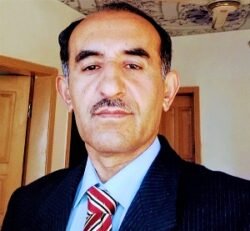By Karim Muhammad Khan
The learning crisis in Gilgit-Baltistan (GB) schools, highlighted by the dismal performance of Grade 9 students in the 2024 board exams conducted by the Federal Board of Intermediate and Secondary Education (FBISE) and the Board of Elementary Education Gilgit-Baltistan (BEEGB), reflects more than administrative inefficiency—it exposes deep-rooted structural inequities and class-based oppression within the education system.
The poor results sparked widespread backlash on social media, prompting authorities to penalise headteachers and deputy directors through demotions, withheld increments, and forced retirements. However, these punitive measures were reactionary, driven by public pressure rather than a comprehensive analysis of the underlying issues. Notably, poor performance was consistent across FBISE schools nationwide, suggesting systemic failure rather than isolated negligence.
Meritocracy vs nepotism
The Gilgit-Baltistan Teachers’ Association (GBTA) contested the selective accountability, arguing that scapegoating low-level educators while shielding more influential figures is both unjust and counterproductive. While they acknowledged the need for accountability, they emphasized it must be applied equitably. The association highlighted that educational decline is a national issue, yet only the powerless are punished.
This approach aligns with Paulo Freire’s critique of the “banking model” of education, where hierarchical, top-down control suppresses dialogue and critical inquiry. Rather than addressing structural deficiencies, authorities impose blanket punishments, reinforcing systemic injustices.
Freire’s Pedagogy of the Oppressed (1970) exposes the myth of meritocracy in systems where power and privilege dictate outcomes. The GBTA’s resistance to selective punishment underscores how oppressive institutions preserve dominance by targeting the vulnerable.
Furthermore, the entrenched culture of sifarish (favouritism) in teacher appointments exacerbates class divides. Positions are often secured through connections rather than merit, undermining institutional trust and limiting opportunities for qualified, underprivileged candidates. This perpetuates poor-quality education in marginalised areas, reinforcing cycles of inequality.
Inquiry findings and structural challenges
Following the exam debacle, a government committee was tasked with investigating the causes. Being a part of the committee, we visited targeted schools, made surveys, and document reviews uncovered stark disparities. In one primary school, 96 students were taught by a single teacher—with a 0% pass rate in Class 5. Such conditions are not isolated. Across peripheral schools, foundational literacy and numeracy skills were alarmingly low.
The findings align with what education experts have long argued: economic marginalisation is mirrored in educational neglect. Chronic underfunding, poor infrastructure, teacher shortages, and ineffective governance are systemic issues. Teachers are often diverted to administrative roles due to centralised decision-making, distancing them from classroom engagement. Some were found on temporary postings in urban centres, leaving rural schools chronically understaffed.
Rote learning and commodification of education
Another key factor behind the crisis was the abrupt change in exam policy. Passing marks were raised from 33% to 40%, formative assessments were abolished, and new exams based on Student Learning Outcome (SLO) were introduced without prior stakeholder consultation or academic support. These sudden reforms, devoid of teacher training or transitional planning, placed students, especially from disadvantaged backgrounds, at a greater disadvantage.
This bureaucratic fixation on quantifiable results over meaningful learning typifies the neoliberal model, where education is treated as a commodity and students as passive recipients. Without foundational skills or support, many students fail or drop out, further entrenching inequality.
Addressing the crisis requires more than surface-level interventions. It demands structural reform backed by political will, adequate funding, and inclusive, data-driven policymaking.
Key recommendations:
There is a need for strengthening school leadership. Headteachers and principals must receive regular training in pedagogical leadership and be meaningfully involved in decisions related to curriculum and assessments.
School governance must be decentralised. Currently, multiple schools fall under a single Drawing and Disbursing Officer (DDO), usually a high school head burdened with excessive responsibilities. This model sidelines primary schools. Each district must prioritise foundational education and appoint academic coordinators to mentor teachers and lead professional development.
Investing in teacher development is pivotal for pedagogical improvement. Research shows curriculum reforms fail without skilled, motivated educators (Naveed & Rafi, 2025). Key priorities should include merit-based hiring, continuous training, and supportive work environments.
Phasing out underperforming staff. A golden handshake scheme and reducing the retirement age from 60 to 55 could help rejuvenate the teaching force, enabling the induction of younger, qualified educators through transparent recruitment processes.
There is an urgent need for improving rural schools by allocating equitable resource to ensure that schools in remote areas have adequate infrastructure, teaching staff, and learning materials.
The learning crisis extends beyond public schools. Many private institutions also performed poorly in the 2024 exams, underscoring a national emergency. A 2022 World Bank and UNESCO report revealed that 77% of Pakistani primary students cannot read a simple story—highlighting decades of neglect.
Temporary measures like stipends for poor students may alleviate symptoms but do not challenge structural oppression. Freire warns against “false charity”, superficial interventions that maintain the status quo. True reform must involve communities, teachers, and students in curriculum development, policy decisions, and school governance.
Critical pedagogy must replace rote learning with inquiry-based, problem-posing education. This model empowers students to understand and challenge social injustices rather than passively accept them.
Reclaiming education for social justice
Gilgit-Baltistan’s learning crisis is not an isolated administrative lapse. It is a symptom of systemic neglect, class oppression, and institutional failure. Without bold reforms, rooted in equity, critical pedagogy, and grassroots engagement, education will continue to serve as a tool of exclusion rather than empowerment.
We must dismantle the bureaucratic and elitist structures that stifle progress, end favouritism in recruitment and promotions, and restore education as a public good. Only through inclusive, transformative action can we reclaim our schools and ensure that every child, regardless of class or geography, receives the quality education they deserve.

Karim Muhammad Khan is Principal of Boys High School Nomal. He is a teacher trainer and contributes regularly to High Asia Herald on educational and pedagogical issues in Gilgit-Baltistan schools

The High Asia Herald is a member of High Asia Media Group — a window to High Asia and Central Asia

